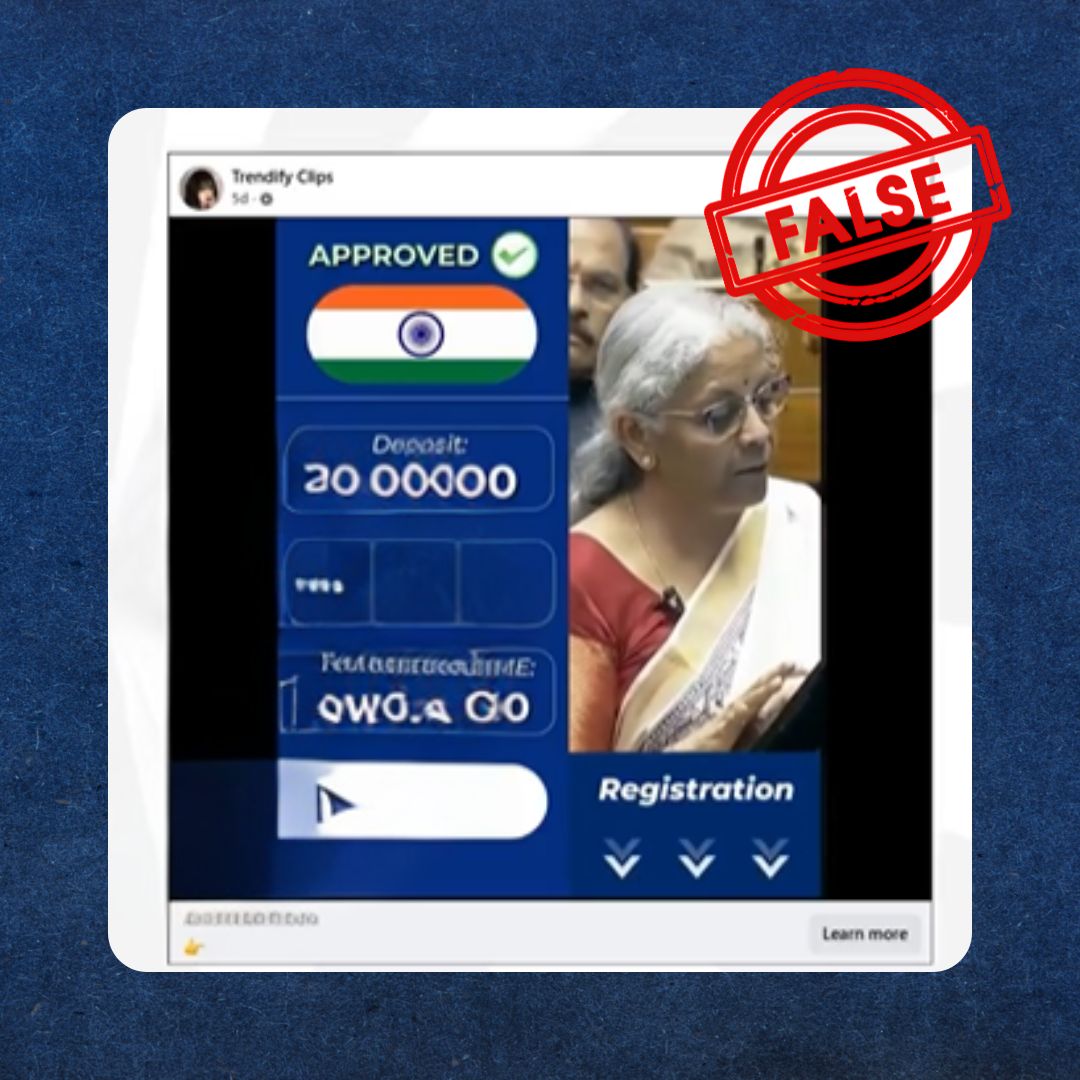A series of videos circulated widely on social media platforms like Facebook and Instagram showed Finance Minister Nirmala Sitharaman apparently endorsing an investment platform called “QuantumAl.”
The videos claimed that an initial investment of around ₹21,000 could generate huge returns – up to ₹60,000 daily or as much as ₹10-20 lakh monthly. These claims created confusion and concern, raising fears of potential scams targeting unsuspecting investors.
Claim
The claim asserted that Finance Minister Nirmala Sitharaman had launched or endorsed a lucrative investment scheme promising extraordinary, almost unrealistic, returns from relatively small investments, specifically, that investing ₹21,000 could earn monthly returns as high as ₹20 lakh through the QuantumAl platform.
Fact
The Press Information Bureau (PIB) Fact Check division, along with other government sources, categorically declared these videos fake and digitally manipulated using AI-generated deepfake technology. The following facts were established:
- No such investment scheme, including QuantumAl, has been launched or endorsed by Finance Minister Nirmala Sitharaman or the Government of India.
- The videos are created by cybercriminals employing deepfake technology that artificially modifies video and audio, making it appear as if the Finance Minister is promoting these schemes.
- Financial experts warn that such offers promising unusually high returns are almost certainly scams preying on people’s desire for quick, easy money.
- The government urges the public not to trust or share such videos and to verify any investment claims through official channels.
Top three sources confirming the fact:
- Press Information Bureau (PIB) official fact check statements.
- Business Standard’s coverage on digital manipulation and scams using deepfake videos.
- News18 and Economic Times reporting on AI-generated scam videos featuring Finance Minister Sitharaman.

Conclusion
This fact check falls unapologetically under the category of False Content. The videos spreading this misinformation are entirely fabricated, misleading, and designed to deceive citizens into fraudulent investment schemes. Authorities stress vigilance and the importance of verifying information through trusted, official government sources to avoid falling prey to such scams.
This case also highlights the growing misuse of sophisticated AI deepfake technology by scammers to create convincing but fake promotional content that can cause significant harm. Public awareness and caution are crucial in combating this emerging threat.












